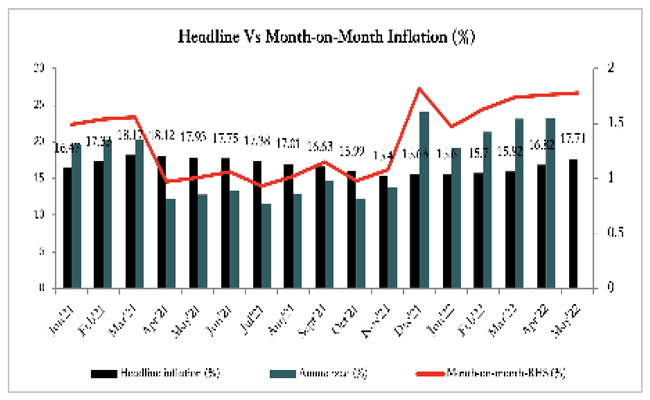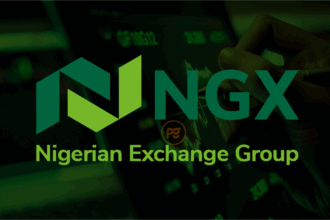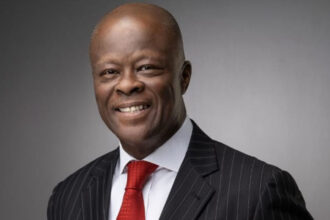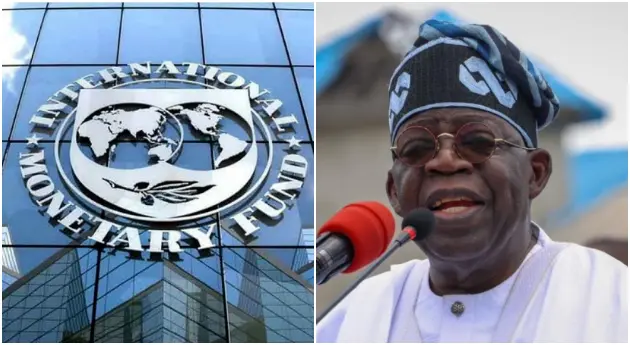As inflation continues to wreak havoc on Nigeria’s economy, stoked by global disruptions to the supply- chain of key basic commodities, including food and energy as a result of the ongoing war between Russia and Ukraine, JOSEPH INOKOTONG reports that analysts say a multi-dimensional approach is required to tame the hydra-headed monster.
Nigerians, for long, have been grappling with general increase in prices of food, goods, other essentials, and a fall in their purchasing power. The condition persisted, notwithstanding the fact that the economy was reported to have recorded growth as exemplified by the first quarter (Q1) 2022 Gross Domestic Product (GDP), which grew by 3.11 percent (year-on-year) in real terms, translating to aggregate GDP of N45,317,823.33 million in nominal terms.
However, the stark reality began to stare many people in the face when the National Bureau of Statistics (NBS) released the inflation figures for May 2022. What was hitherto a subject of subdued chatter in some pubs, took center stage, elevating rapidly into a national discourse that can no longer be ignored and suppressed due to the sheer debilitating impact it has wrought on the economy and well-being of the citizens.
The NBS’s Consumer Price Index (CPI), which measures inflation, puts the May 2022 inflation rate at 17.71 percent. This did not come to many discerning people as a surprise. It only served to reaffirm the prevailing economic situation under which many hard-working Nigerians have been living, and possibly, as an official admission by the government that it is no longer at ease with the governed.
Indeed, at about the period the NBS’s data was released, the International Monetary Fund (IMF) in its preliminary findings after concluding its Staff visit to Nigeria had warned about the challenging economic outlook for the country with high food prices, raising food security concerns. The Fund reiterated that Real GDP growth is broadening to all sectors except oil, but inflation remains elevated. The team led by MsJesmin Rahman held meetings with the Nigerian authorities from June 6-10, 2022, to discuss recent economic and financial developments and the economic outlook for the country. At the end of the visit, Rahman issued a statement that confirmed the present situation: “Economic recovery continues to gain strength on the back of services and agriculture with GDP growth reaching 3.6 percent (y/y) in Q1 2022. Latest data shows economic growth broadening to all sectors except oil, where production remains weak reflecting continued security and technical challenges.”
The Fund’s worry about growth in the oil sector, which remains the mainstay of the economy to date despite the improved performance of the non-oil sector, was a mere reminder of what many Nigerians have spoken about.
For instance, the Chairman of the United Bank of Africa, Mr Tony Elumelu, recently disclosed that oil theft was on the upswing at Bonny Terminal, Rivers State, alleging that Nigeria was losing barrels of oil to thieves. In a Twitter thread on March 17, he pointed out that Nigeria was losing 95 percent of production at the Bonny terminal to vandals making Shell declare force majeure production activities on that field. MrElumelu tweeted “Look at Bonny Terminal that should be receiving 200k barrels per day, instead it received less than 3,000 barrels, leading the operator @shell to declare force majeure.”
Interestingly, the Group Managing Director of the Nigerian National Petroleum Company Limited (NNPC), MeleKyari, corroborated MrElumelu’s claims when he appeared before the House of Representatives Committee on Petroleum (Upstream). The GMD told the panel that Nigeria could only get 3,000 barrels out of 239,000 barrels injected into the pipeline from Bonny Terminal, adding that the country lost $4 billion to theft at the rate of 200,000 barrels per day in 2021. He stressed that the nation had already lost $1.5 billion so far in 2022 due to the escalating nefarious activities of vandals.
Kyari said “Indeed what’s happening is massive acts of vandals and thieves on our pipelines that have first made us lose our volume. Secondly, it forced us to shut down production. The difference between the current production of 1.49 million and our potential that we can easily do – close to 1.8 million or so – at an independent level is not necessarily stolen and they are not within the reach of ordinary vandals. What has been in massive difficulty is the production from the independents and the Joint Ventures (JV). Unfortunately, except for the ExxonMobil production, most of our JV is onshore. This is where we have the challenge.”
The gloomy picture painted by the NNPC Limited GMD has illustrated vividly why Nigeria finds it difficult to meet its OPEC quota, thereby depriving the country of the much-needed foreign exchange earnings to grow the economy in an era of oil price boom. Without buoyant forex to support the importation of essential goods needed in the country, the few available become more expensive, thereby unlocking the door for inflation to literally walk in.
Again, the IMF’s Staff visit team stated: “Inflation has reached 17.7 percent (y/y) in May led by a renewed surge in food prices, exacerbated by the war in Ukraine, and raising food security concerns as over 40 percent of the population live below the poverty line. To contain inflationary pressures, the Central Bank of Nigeria has recently hiked its monetary policy rate by 150 basis points to 13 percent.
“Regarding the external sector, the current account deficit narrowed significantly in 2021 helped by import compression and higher net oil balance. However, the improving trade balance, which has continued so far in 2022, is having a limited impact on Foreign Exchange (FX) strains with the exchange rate premiums in the parallel market staying in the 35-40 percent range since October 2021. Despite supportive oil prices, gross FX reserves fell to $38.6 billion at the end-May 2022, having reached $41.5 billion in September 2021 boosted by SDR allocation and Eurobond issuance.
“Regarding the economic outlook, GDP growth is projected at 3.4 percent (y/y) in 2022 while inflation is expected to remain elevated. The fiscal deficit of the Consolidated Government is expected to remain high at 6.1 percent of GDP due in great measure to costly petrol subsidies and limited tax revenue collections. Downside risks in the near term arise from further deterioration of security conditions, elections, low vaccination against COVID-19, and higher global interest rates. On the upside, steady private sector recovery and further broadening of growth, the start of operations at the Dangote refinery, and decisive steps to mobilise revenues, in line with the Strategic Revenue Growth Initiative (SRGI) could spur inclusive growth and development.”
In a telephone interview, a development economist, Alhaji Ibrahim Aliyu agreed with the fund’s projection that inflation may remain elevated in the near term due to further deterioration of security conditions, elections, low vaccination against COVID-19, and higher global interest rates. He urged the Federal Government to speed up the repairs of the refineries in order to free scarce foreign exchange earnings spent on petroleum products’ imports for other developmental purposes. He averred that the challenging security situation in some parts of the country has rendered efforts at aggressive development of the country an uphill task, and in the process slowing down growth.
“In some parts of the Northern States, farmers cannot cultivate the land as they used to because of insecurity, leading to low yields and harvest. Under the prevailing situation, the few farms’ produce harvested and taken to the market would be expensive. Therefore, it is not surprising to me that food items in the country are expensive, although the Russia/Ukraine war is also a contributory factor since Nigeria has not been able to produce enough wheat for its consumption at the moment. Tackling insecurity head-on is one of the measures needed to address the high cost of food prices, and scarcity in the country,”Aliyu said.
The NBS in its CPI report said the food index on a year-on-year basis rose to 19.50 percent in May 2022, but it declined by 2.78 percent compared to 22.28 percent in May 2021. It attributed the rise in the food index to increases in prices of bread and cereals, food products potatoes, yam, other tubers, wine, fish, meat, and oils.
On a month-on-month basis, the core sub-index increased to 1.87 percent in May 2022. This is up by 0.65 percent when compared to 1.22 percent recorded in April 2022. The highest increases were recorded in prices of Gas, Liquid fuel, Garment, Solid fuel, Cleaning, Repair and Hire of clothing and Passenger transport by road.
All Items Inflation for the states in May 2022 on a year-on-year basis was highest in Bauchi (20.62percent), AkwaIbom (20.34percent), and Rivers (19.95percent), while Kwara (15.45percent), Kaduna (15.69percent) and Jigawa (16.15percent) recorded the slowest rise in the headline inflation. However, on a month-on-month, May 2022, recorded the highest increases in Bauchi (3.17percent), Bayelsa (2.73percent), and Kogi (2.71percent), while Yobe (0.22percent), Jigawa (0.95percent) and Benue (1.07percent) recorded the slowest rise on month-on-month inflation.
Food sub-index Inflation for the states in May 2022, on a year-on-year basis was highest in Kogi (22.79percent), AkwaIbom (22.47percent), and Kwara (22.21percent), while Kaduna (16.46percent), Anambra (16.54percent) and Jigawa (16.91percent) recorded the slowest rise in food inflation. On a month-on-month basis, however, in May 2022 food inflation was highest in Rivers (3.65percent), Abia (3.31percent), and Ogun (3.23percent), while Yobe (0.01percent), Osun (0.76percent), and Jigawa (0.81percent) recorded the slowest rise in food inflation.
An economist, chartered accountant, and public finance expert, MrCijeyuOjong, said “As we say in Nigeria, what goes up continues to go up. But seriously it is a spin-off, the depreciating Naira, and transmission. Then again, food inflation might fall due to the harvest season and the non-import of the food. This could slightly reduce the composite inflation figure. It’s just like the weight of an item among other items in a basket could cause an increase or decrease in the overall weight of the basket. Some have come down a bit. A moduof garri here at Garki Market sold for about N600 a while ago. It is now selling for N400 for instance. Snails have also dropped in price compared to a few months back.”
On how to control the rising inflation, the Managing Director, SimansStrategic Communication Ltd, Mr Obadiah Tohomdet, a former Senior Communications Specialist with the World Bank said the monetary authority can raise interest rates to slow inflation, and by raising rates, it will discourage consumers from making large purchases and compels people to pull back on spending. The goal, he stressed is to lower demand over time, allowing prices to come down and stabilise. He added that this measure must be taken in conjunction with the fiscal authority that would also implement remedial policies as monetary action alone may not nib inflationary pressures in the mud. “Raising interest rates can help tame inflation as higher rates make borrowing more expensive and encourage saving. When debt is costlier, this in turn can influence consumer demand for goods and services, as well as business investment and hiring intentions. This can help to cool inflation when demand is outstripping supply.”
A Senior Research Analyst at FXTM, LukmanOtunuga, said “Theoretically, the rate hikes could limit inflation risks at a time when external and domestic factors are threatening Nigeria’s economy. Ongoing geopolitical risks, extreme weather, and supply-chain disruptions could feed the inflation monster, while pre-election spending ahead of the general elections is likely to exacerbate the negative situation. But the burning question is whether Nigeria is in a position to handle higher interest rates? Time will tell.”
The World Bank had projected that the current inflationary pressure will push additional one million Nigerians into extreme poverty by the end of this year. In its latest Nigeria Development Update (NDU) report, titled, “The continuing urgency of business unusual,” it estimated that an additional one million would be added to the six million Nigerians that were already predicted to relapse into poverty this year because of increase in prices, particularly food prices.
Mr Bismarck Rewane, CEO of Financial Derivatives Company Limited (FDC) in a telephone interview said it would amount to repeating himself if says anything on inflation other than what has been released in the Economic Bulletin of June 16, 2022, by the FDC Think Tank that shares its thoughts on the impact of May’s inflation numbers on the economy.
Rewane said “Nigeria is an importer of some food commodities principally exported by Ukraine and Russia. The price of wheat for instance has gone up significantly, as a result of the war. Wheat is used in making flour and bread which is a major staple. The surge in global wheat prices is being exacerbated by the exchange rate pass-through effect and these drive food inflation.
“Meanwhile, diesel has contributed astronomically to the domestic rise in prices and inflationary pressure. Diesel has risen about 300percent in the last year and is selling for around N800/litre. Detonating diesel prices are increasing business operating costs and logistics costs which are further compounding the Sustained increases in the general price level.”
In his analysis of the situation, he explained that the “U.S inflation spiked to a multi-decade high of 8.6 percent in May, and in response, the Fed at its most recent policy meeting hiked its benchmark interest rate by 75bps to 1.75percent. This is the largest increase since 1994. Similarly, inflation in the UK has risen to a 40-year high of nine percent. The Bank of England has hiked rates at all four of its last meetings and is likely to continue this trend into the near future. In the EU, inflation has climbed to a record high of 8.10percent. The European Central Bank has signaled that it will be raising its interest rate by 25bps at its next meeting in July. This will be the first-rate hike by the ECB since 2011.
“A hike in interest rates by these major economies will raise the value of their currencies relative to that of other currencies such as the Naira and worsen the effects of imported inflation on Nigeria’s economy.
“Several African countries which had long shown reluctance to raise interest rates have finally given in to the pressure of mounting inflation and hiked their benchmark policy rates. This raises the question of whether these hikes might be too late or better late than never. As the world continues to move in the direction of monetary tightening, African countries are widely expected to follow this trend”.
Based on MrRewane’s estimation, the monetary policy committee of the Central Bank of Nigeria (CBN) will be holding its next meeting in July, and like the apex bank finally ended its long-held status-quo stance at its last meeting in May by raising the policy rate by 150bps to 13percent p.a., “given the continued relentless rise in inflation, this is likely to provide an impetus for further rate hikes by the MPC in a bid to stem inflationary pressure.”
As inflation continues to wreak havoc in Nigeria, stoked by global disruptions to the supply of key commodities, including food and energy, as a result of the ongoing war in Ukraine, it is obvious that a multi-dimensional approach is required to tame the hydra-headed monster.







